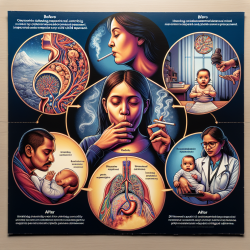Introduction
In the realm of speech-language pathology, data-driven decisions are paramount to ensuring effective interventions and optimal outcomes for children. By examining the response to the 2014 Ebola outbreak, as detailed in the research article "EBOLA and FDA: Reviewing the Response to the 2014 Outbreak, to Find Lessons for the Future," practitioners can glean valuable insights into the importance of evidence-based practices and the role of regulatory frameworks in healthcare. This blog will explore how the lessons learned from the Ebola outbreak can be applied to enhance speech-language pathology practices, particularly in the context of online therapy services provided by companies like TinyEYE.
Data-Driven Decision Making
The 2014 Ebola outbreak underscored the critical role of data in guiding healthcare responses. The U.S. Food and Drug Administration (FDA) demonstrated flexibility and adaptability in its regulatory processes, emphasizing the need for evidence-based interventions even amidst a public health emergency. This approach aligns with the principles of speech-language pathology, where data-driven decisions are essential for tailoring interventions to meet the unique needs of each child.
Implementing Evidence-Based Practices
Speech-language pathologists can draw parallels between the FDA's response to the Ebola outbreak and their own practice. Just as the FDA relied on rigorous research to evaluate the safety and efficacy of treatments, speech-language pathologists must base their interventions on robust evidence. This involves staying informed about the latest research, utilizing standardized assessments, and continually evaluating the effectiveness of therapy techniques.
Encouraging Further Research
The Ebola outbreak highlighted the importance of ongoing research in addressing emerging health threats. Speech-language pathologists should be encouraged to engage in research activities, whether through conducting studies, collaborating with academic institutions, or staying abreast of current literature. By contributing to the body of knowledge in the field, practitioners can help advance evidence-based practices and improve outcomes for children receiving online therapy services.
Conclusion
The lessons learned from the 2014 Ebola outbreak offer valuable insights for speech-language pathologists seeking to enhance their practice. By prioritizing data-driven decisions, implementing evidence-based practices, and engaging in ongoing research, practitioners can ensure that their interventions are effective and tailored to the needs of each child. As we continue to navigate the challenges of providing online therapy services, let us remain committed to leveraging the power of data and research to create positive outcomes for children.
To read the original research paper, please follow this link: EBOLA and FDA: reviewing the response to the 2014 outbreak, to find lessons for the future.










